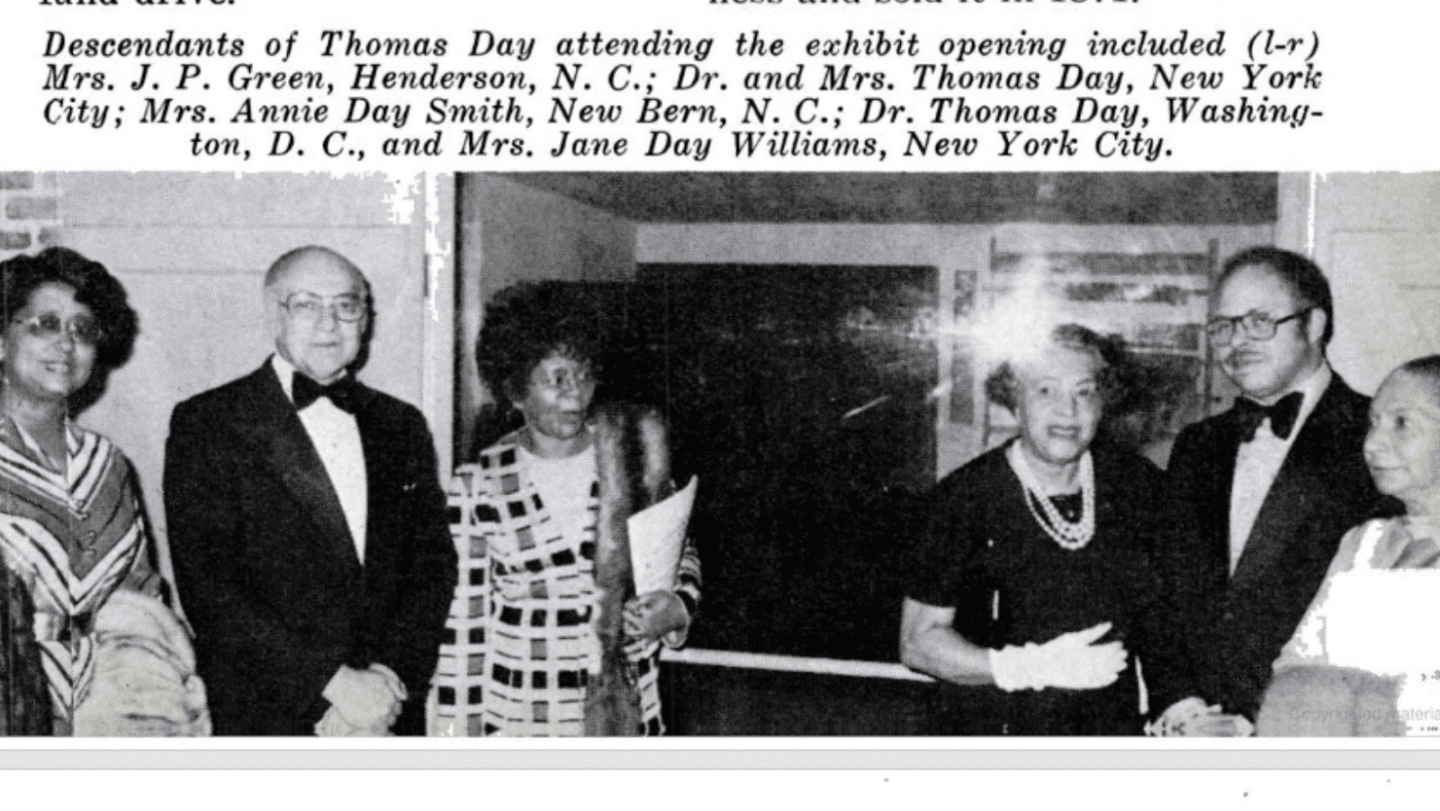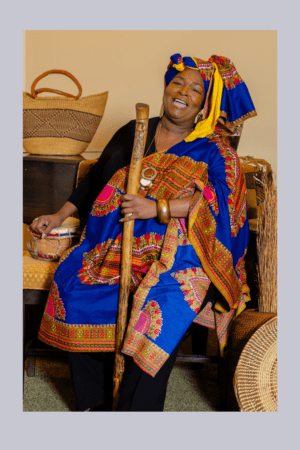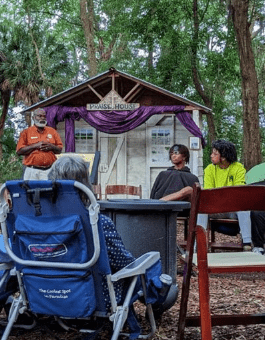
In 1975, to celebrate the mastery of Thomas Day (1801-1861), a free person of color and renowned furniture maker, the North Carolina Museum of History announced in newspapers statewide that they were seeking the owners of Thomas Day’s work. The museum was publishing a special catalog to showcase Day, who was considered one of the best cabinet makers in pre-Civil War North Carolina.From the time the museum put out that call and the time it was answered was nothing short of miraculous as in the magic Black women are known to produce.
Members of the Winston-Salem Alumnae Chapter of Delta Sigma Theta Sorority, Inc., swiftly jumped on-board and established the Delta -Thomas Day Campaign, which caught fire among their members in the state and nationally. Chair of the campaign, Annette Williams, on behalf of the sorority was able to present the museum with 18 donated pieces of Day’s furniture that was purchased by the sorority.

Thomas Day, Open-pillar bureau, 1855, mahogany, mahogany veneer over yellow pine and poplar, Collection of the North Carolina Museum of History, acquired with funds donated by Delta Sigma Theta, Inc. Furniture photography by Eric N. Blevins and D. Kent Thompson of the North Carolina Museum of History/SI.
The 18 pieces came from a collection previously owned by the Governor of North Carolina, David Settle Reid, who served in the 1850s prior to Day’s death. During his workshop’s heyday, Day’s cabinetry and furniture was commissioned for such landmarks as the University of North Carolina and by some of the state’s wealthiest citizens. Day died in 1861, and his son, Thomas Day Jr. continued the business until 1871.
What makes Day’s work even more remarkable is that he never signed any of it. Antique dealers and museum experts identify his work by his distinctive design elements, which set him apart from white contemporaries.

Jet magazine, February 12, 1976.
Thomas Day was considered a “father” of NC furniture-making and a study in contradictions. As a free person of color, he owned slaves. As a slave owner, he was also an abolitionist. He was considered a kindly slave-owner, who refused to sell the people he owned. Some believe they were relatives. Day, albeit free, faced many hardships as his freedom as a free Black was restricted and as the Civil War approached his business diminished due to some clients who sided with the Confederacy. Thankfully, the women of Delta Sigma Theta found value in his work and legacy.

The Winston-Salem Alumnae Chapter of DST should be lauded for their support of Black artists, artisans and folkways before and after the Delta-Thomas Day Campaign. They established Delta Fine Arts, Inc. in 1972, a nonprofit that provides cultural and educational programming. Their first major exhibit “Reflections: The Afro-American Artist,” was the first of its kind in North Carolina. As described on the DFA website, “This exhibition of one hundred works of art by eighty African-American artists of the last two centuries was accompanied by performances, lectures, and dialogues with artists.” As DFA, the sorority has established an arts center, purchased and donated art to museums by NC artists such as Selma Burke, John Biggers and Romare Bearden. They’ve commissioned art for Winston-Salem State University as well as collaborated on book signings, concerts, readings and more in the state of North Carolina.
NC Museum of History is a Smithsonian affiliate. Thomas Day’s work can be found in collections in other Smithsonian museums in DC.

Mahogany side chair created by Thomas Day.
Collection of the Smithsonian National Museum of African American History and Culture
If you’re near or in Milton, NC, make an appointment to visit the Thomas Day House and Union Tavern. The site of Day’s home and tavern has some of his furniture on display. Call (336) 234-0030 to see if the museum is operating and when.












